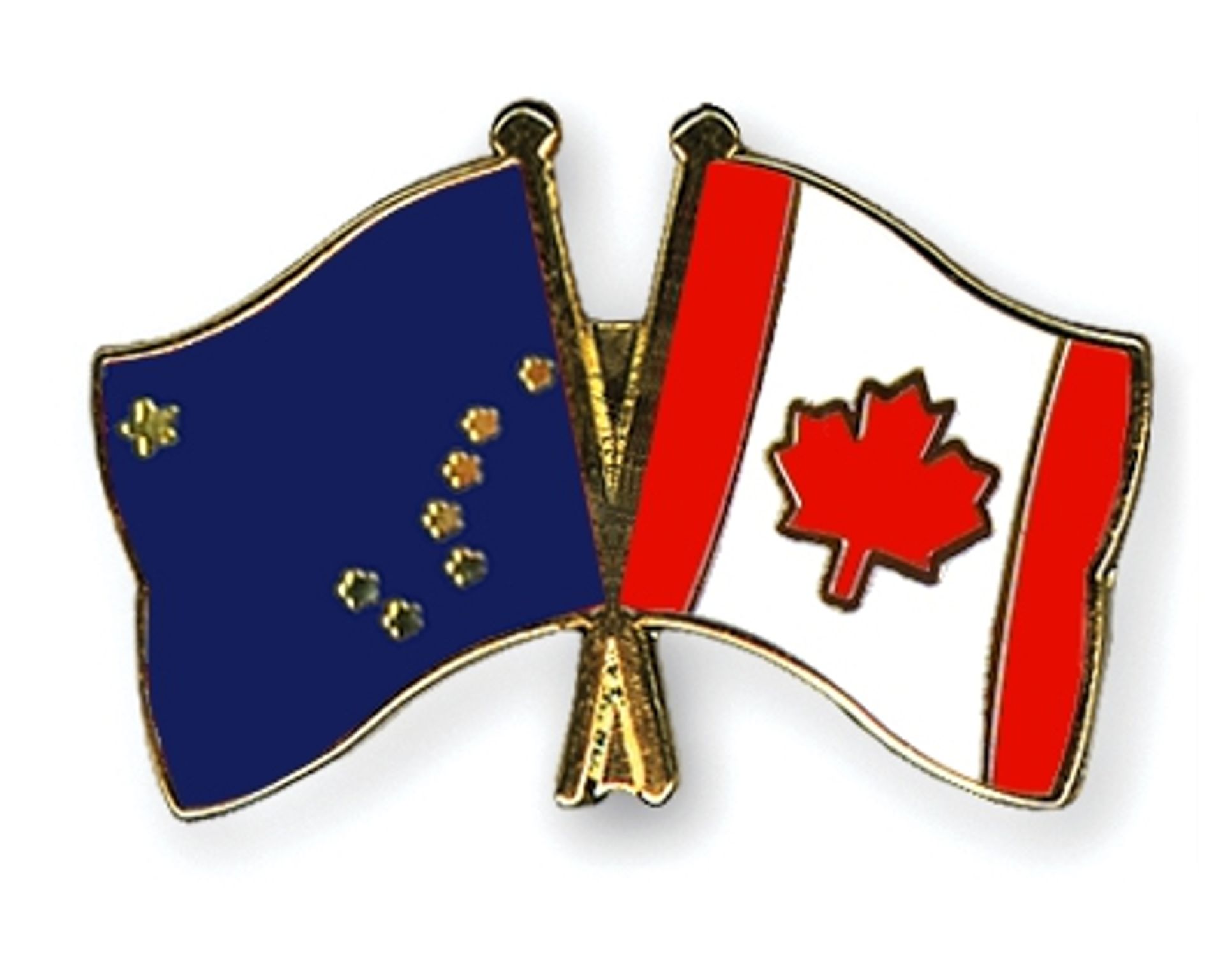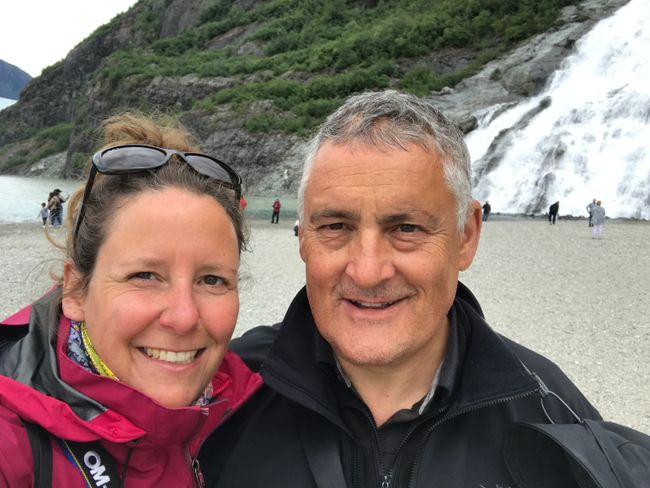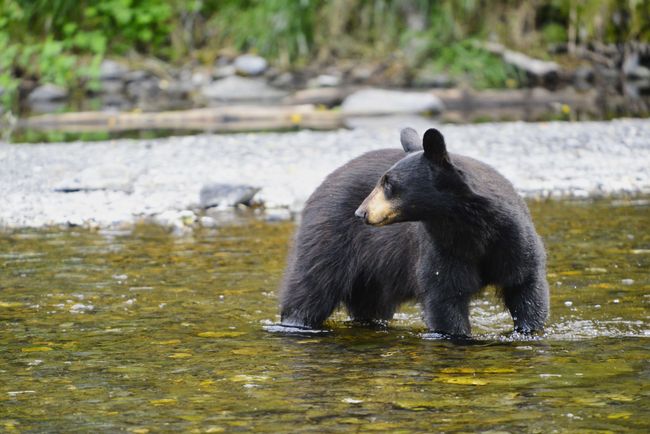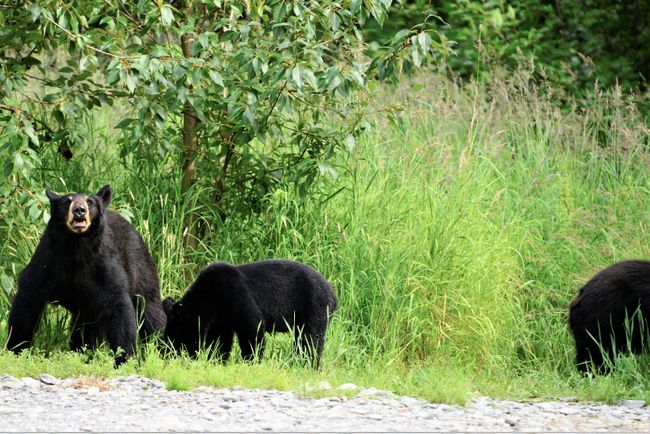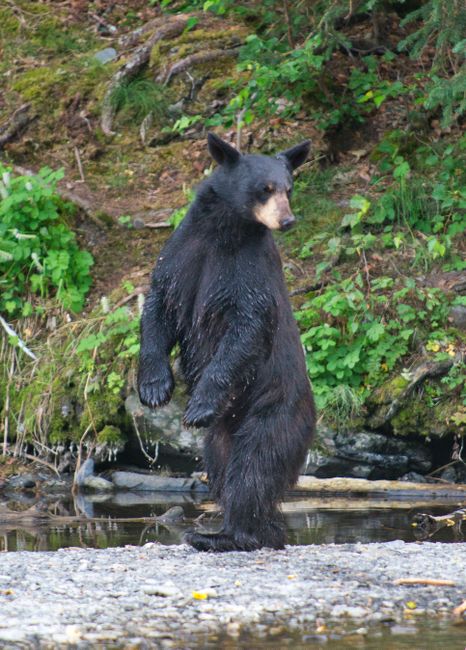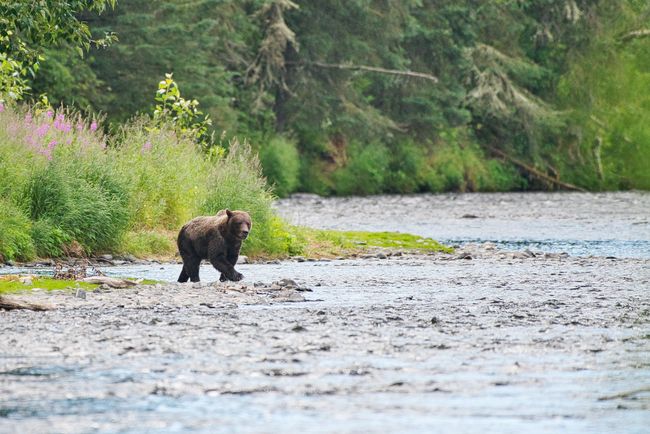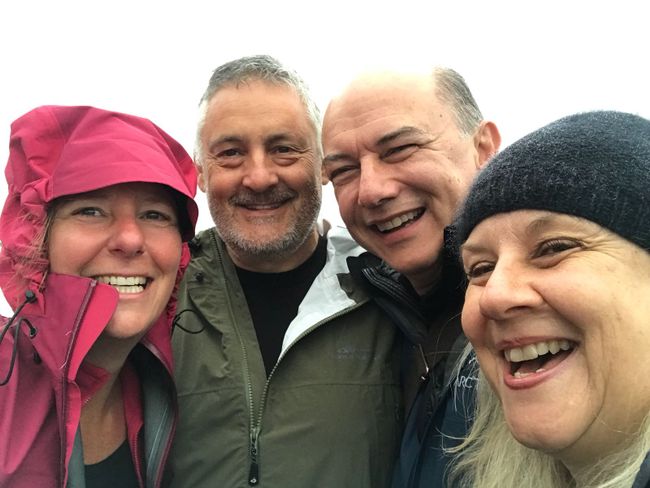From 'the town under one roof' to Anchorage
Publicat: 06.08.2018
Aboneaza-te la Newsletter
The first passengers of the Island Princess disembark in Whittier at 08:45. We can already see the impressive ship in the harbor from our location. Hectic ensues as we drive Verny to the parking lot in front of the ship. Cars, vans, and vehicles from various tour operators and lots of personnel are bustling around the area, so a lost tourist with a camper doesn't fit into the concept. The excited gentleman in the snazzy yellow plastic vest waves frantically while running towards us. He only calms down when we explain that we are picking up two VIPs. We even get assigned a spot behind two containers.
And there come Andrea and Claude in the rain, with their luggage. Nice to see you! Whittier is not a pearl on the Pacific, the beautiful high-rise building, the 'fishing industry zone' are not very charming. The low-hanging clouds prevent us from seeing the beautiful surrounding mountains with the snowfields, and the Passage Canal feels leaden. After the joyful greeting, we all need a coffee and something to eat.
We decide to visit the Alaska Wildlife Conservation Center on the way to Cooper Landing and head to the tunnel.
The nice lady at the reception of our first accommodation in Cooper Landing tells us that in the morning she saw several black bears while fishing in the lower part of the Russian River (exactly at Hole 18, an access to the river for the fishermen, she even shows us a drawing). This gets us excited after the journey, and we rush to the Russian River Trailhead Parking ATM as quickly as possible. A little bit up the river, then down, nothing to see. A group of extremely well-equipped Japanese fishermen at Hole 21 is very hard to understand, but we understand very well that they saw bears 30 minutes ago further downstream. Off to Slot 18, Andrea takes out the binoculars, looks intently down the river, then up, and dryly reports 'there he is'. And indeed, a black bear is walking on the opposite bank towards us. Amazing, it's maybe 25-30 meters away. Shortly after, another bear, no, it's a bear with two cubs! Wow. Enthusiastically, we promote Andrea to the ranger and chief spotter. We are overwhelmed, it is very special to observe these animals.
Since the weather forecast for the next day is bleak (rain at around 10°C), we squeeze in a trip to Seward. We hope to see and photograph bald eagles. Unfortunately, that didn't work out. At the Seward Library & Museum, however, we learn a lot about the Iditarod sled dog race and the history of Seward. For example, how the flag of Alaska, designed by 13-year-old Benny Benson from Seward, was created (the blue of the sky and forget-me-not flower, the North Star and the Big Dipper as a symbol of strength). One focus is the earthquake that hit Seward hard in 1963. Interesting and dry.
The next day, we want to observe the salmon run at Russian Falls and the combat fishing further downstream at the river. Of course, after the great luck the previous evening, we hope to see more black bears and maybe even brown bears, which apparently walked up the river towards the falls. Yes, it was sunny and pleasantly warm, the short hike did us good, but the red bodies of the sockeyes in the water below the falls and the giant leaps of the salmon impressed us, although our ranger could not spot any hairy creatures.
Normality after yesterday's luck? Back with Verny, we enjoy a small snack. Spontaneously, we head back to the 18th hole, you never know. Hard to believe, but in no time we see the first, and then the second black bear. The second one changes sides right below our position, which even makes the fisherman in the water in front of us a little uneasy. We decide to avoid a possible encounter, move slowly upstream, and keep an eye out at every hole. After all, we haven't seen the bear with its two cubs today. There, a good distance further downstream, a bear is moving up the river on the other bank. It's big and has a hump, a brown bear! Mega cool. And when it changes sides as well, we blow the retreat. One fisherman aptly says 'he's not huge, but big enough'.
On the way to Anchorage, we visit the village of Hope, built during the Gold Rush era in the north of the Kenai Peninsula, on the Turnagain Arm of Cook Inlet. In 1895, it became known in Seattle that gold had been found in Six Mile Creek on the Kenai Peninsula. About 3,000 stampeders left the USA within a year in 1895 to try their luck in one of the first gold rushes. But after the discovery of gold in the Klondike in 1898, the rapid development of Hope was already over, and most of the gold miners from Hope moved towards the Klondike. A pretty, peaceful village with beautiful old log buildings. The coffee is good, the girls carry guns and knives, and the art here is in the upper price range too.
On Sunday, we celebrate a birthday with a cozy brunch. The final city walk and the drive to the airport are overshadowed by the imminent departure. In the spring, the visit was still so far away, the days we spent together were eventful and went by very quickly.
It was nice to share a few days of our adventure with all of you.
Aboneaza-te la Newsletter
Răspuns (1)
Silvia
Purer Wahnsinn, die Bärenbilder!!!!!!!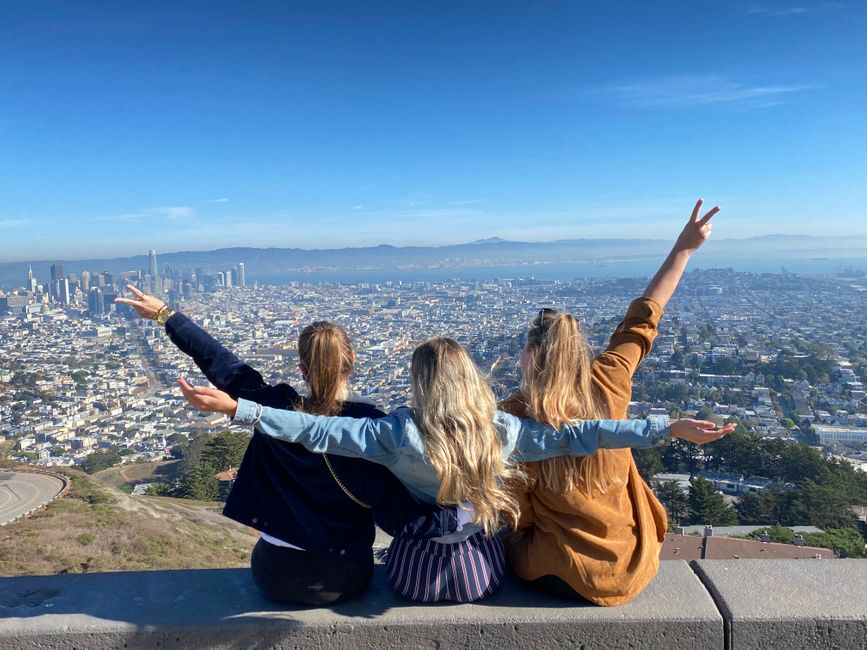
Rapoarte de călătorie STATELE UNITE ALE AMERICII
